Ditapis dengan
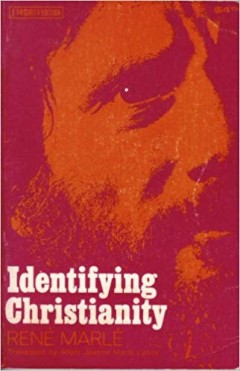
Identifying Christianity
- Edisi
- First Published
- ISBN/ISSN
- 0-87029-043-6
- Deskripsi Fisik
- xi + 175 pgs.; 20 cm.
- Judul Seri
- -
- No. Panggil
- 230 MAR i
- Edisi
- First Published
- ISBN/ISSN
- 0-87029-043-6
- Deskripsi Fisik
- xi + 175 pgs.; 20 cm.
- Judul Seri
- -
- No. Panggil
- 230 MAR i

Karl Rahner: Theology and Philosophy
- Edisi
- First Published
- ISBN/ISSN
- 0-415-25964-9
- Deskripsi Fisik
- ix + 160 hlm.; 23 cm.
- Judul Seri
- -
- No. Panggil
- 230 KIL k
- Edisi
- First Published
- ISBN/ISSN
- 0-415-25964-9
- Deskripsi Fisik
- ix + 160 hlm.; 23 cm.
- Judul Seri
- -
- No. Panggil
- 230 KIL k
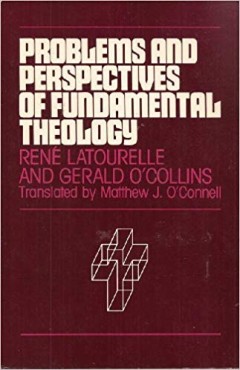
Problems And Perspectives Of Fundamental Theology
- Edisi
- First Published
- ISBN/ISSN
- 0-8091-2466-1
- Deskripsi Fisik
- iv + 412 pgs.; 22,5 cm.
- Judul Seri
- -
- No. Panggil
- 230 O'CO p
- Edisi
- First Published
- ISBN/ISSN
- 0-8091-2466-1
- Deskripsi Fisik
- iv + 412 pgs.; 22,5 cm.
- Judul Seri
- -
- No. Panggil
- 230 O'CO p

The Experience Of God: An Invitation To Do Theology
- Edisi
- First Published
- ISBN/ISSN
- 0-8091-2394-0
- Deskripsi Fisik
- 87 pgs.; 20 cm.
- Judul Seri
- -
- No. Panggil
- 230 LAN e
- Edisi
- First Published
- ISBN/ISSN
- 0-8091-2394-0
- Deskripsi Fisik
- 87 pgs.; 20 cm.
- Judul Seri
- -
- No. Panggil
- 230 LAN e
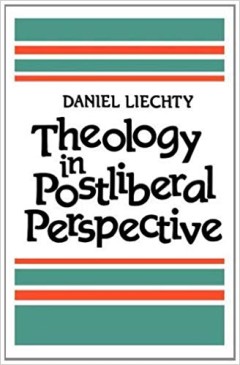
Theology In Postliberal Perspective
For many Christians, the time of an authoritarian theology, whether based on the authority of the Bible or that of the church, is no longer viable. Even movements like "biblical theology" or the kind of theology of revelation centered on Jesus Christ, such as Karl Barth championed, seem to have had their day in our pluralistic world. In addition, a return to the liberalism that was so dominant …
- Edisi
- First Published
- ISBN/ISSN
- 0-334-02481-1
- Deskripsi Fisik
- xiii + 114 hlm.; 21 cm.
- Judul Seri
- -
- No. Panggil
- 230.046 LIE t
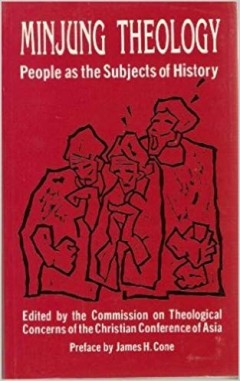
Minjung Theology: People As The Subjects Of History
- Edisi
- First Published
- ISBN/ISSN
- 0-88344-336-8
- Deskripsi Fisik
- xix + 200 pgs.; 21,5 cm.
- Judul Seri
- -
- No. Panggil
- 261.8 MIN m
- Edisi
- First Published
- ISBN/ISSN
- 0-88344-336-8
- Deskripsi Fisik
- xix + 200 pgs.; 21,5 cm.
- Judul Seri
- -
- No. Panggil
- 261.8 MIN m
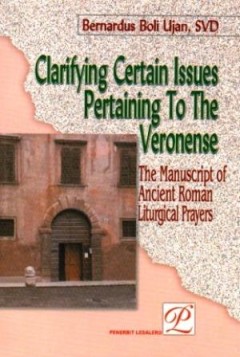
Clarifying Certain Issues Pertaining to The Veronense: The Manuscript of Anci…
- Edisi
- First Edition
- ISBN/ISSN
- 979-9447-33-X
- Deskripsi Fisik
- ix + 196 pgs.; 21 cm.
- Judul Seri
- -
- No. Panggil
- 264 UJA c
- Edisi
- First Edition
- ISBN/ISSN
- 979-9447-33-X
- Deskripsi Fisik
- ix + 196 pgs.; 21 cm.
- Judul Seri
- -
- No. Panggil
- 264 UJA c

The Challenge of Liberation Theology: A First World Response
- Edisi
- First Published
- ISBN/ISSN
- 0-88344-092X
- Deskripsi Fisik
- v +147 pgs.; 23,5 cm.
- Judul Seri
- -
- No. Panggil
- 261.8 CHA c.a
- Edisi
- First Published
- ISBN/ISSN
- 0-88344-092X
- Deskripsi Fisik
- v +147 pgs.; 23,5 cm.
- Judul Seri
- -
- No. Panggil
- 261.8 CHA c.a

Postmodern Theology: Christian Faith In A Pluralist World
The dominant position of science in our culture has ended. In our postmodern world, belief that science will provide the answer to our problems and that progress is inevitable has been shaken, if not toppled. Optimism has been replaced by realism, creating a milieu for the development of intelligent Christian belief. Participating in the Trinity Institute's conference on "The Church in a Postmo…
- Edisi
- First Published
- ISBN/ISSN
- 0-06-061231-2
- Deskripsi Fisik
- xvi + 117 pgs.; 20,5 cm.
- Judul Seri
- -
- No. Panggil
- 230 POS p

The Theology of The Later Pauline Letters: New Testament Theology
This volume investigates the respective theologies of the Letters to the Colossians and the Ephesians, and in so doing provides an accessible introduction to the themes and significance of these New Testament books. A. J. M. Wedderburn examines the background to Colossians, and considers both its readers' situation and that of its author. He asks whether the proponents of the teaching against w…
- Edisi
- First Published
- ISBN/ISSN
- 0-521-36460-4
- Deskripsi Fisik
- xi + 185 pgs.; 21,5 cm.
- Judul Seri
- -
- No. Panggil
- 227.506 LIN t
 Karya Umum
Karya Umum  Filsafat
Filsafat  Agama
Agama  Ilmu-ilmu Sosial
Ilmu-ilmu Sosial  Bahasa
Bahasa  Ilmu-ilmu Murni
Ilmu-ilmu Murni  Ilmu-ilmu Terapan
Ilmu-ilmu Terapan  Kesenian, Hiburan, dan Olahraga
Kesenian, Hiburan, dan Olahraga  Kesusastraan
Kesusastraan  Geografi dan Sejarah
Geografi dan Sejarah